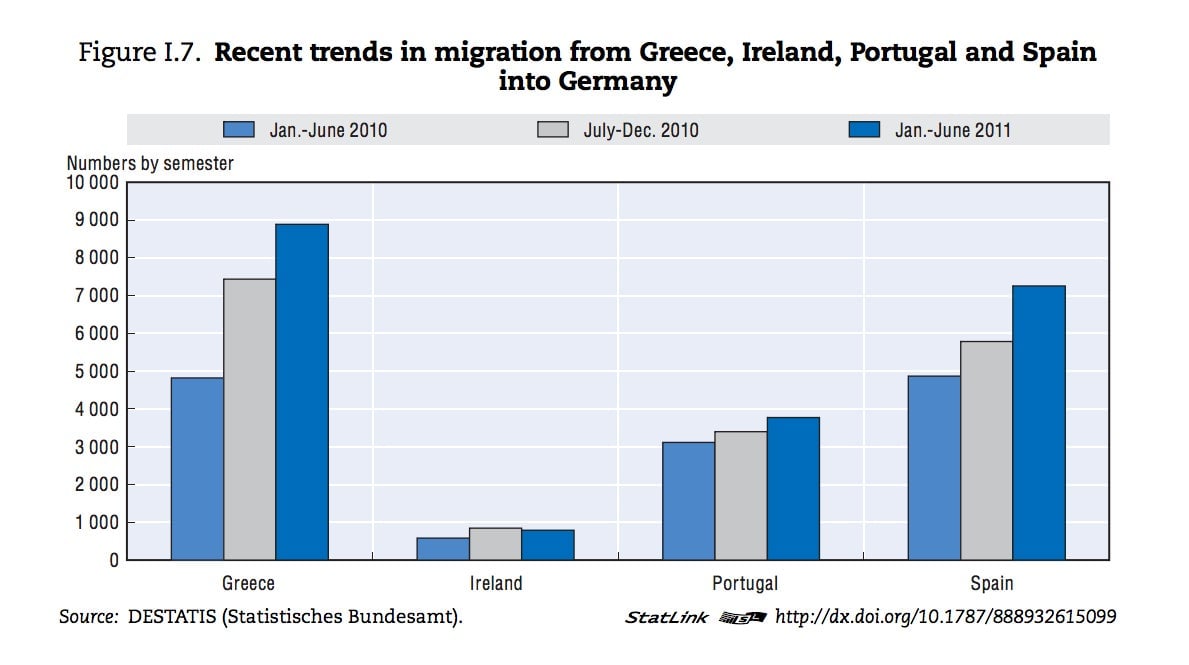Greek immigration to Germany surges
We have a feeling you’re going to be reading a lot more about this.

We have a feeling you’re going to be reading a lot more about this.
Greek immigration to Germany is gathering steam, as people flee the truly atrocious economic situation in the Hellenic Republic. Here’s the pertinent section of the press release —thanks Google Translate!—from the German federal statistical agency:
Most foreign newcomers came from the countries of the European Union (EU). Here the number of entries increased by 24% to 306,000. The most immigrants still came from Poland (89,000). It was noticeable in the first half 2012, the sharp increase in immigration from EU countries, which have been particularly hard hit by the financial and the debt crisis: 78% more immigrants came from Greece than than in the first half of 2011 (+6,900 people), 53% more from Spain (+3,900 people), and also from Portugal 53% (+2,000). From the countries that joined the EU in 2004, immigration increased in the first half 2012 by 20% to 138,000, while the increase for Hungary fell to +46% from particularly high levels. From the countries that joined the EU in 2007, immigration increased by 24% to 88,000 persons.
The migration of peoples affected by the ongoing crisis in Europe adds another layer of complexity to a crisis that shows no signs of resolving any time soon. With the entire euro zone now likely in recession, tensions with immigrants over scarce jobs could rise.
Here’s a chart from the OECD’s terrific June 2012 report on migration, which shows inflows into Germany from debt crisis countries:
